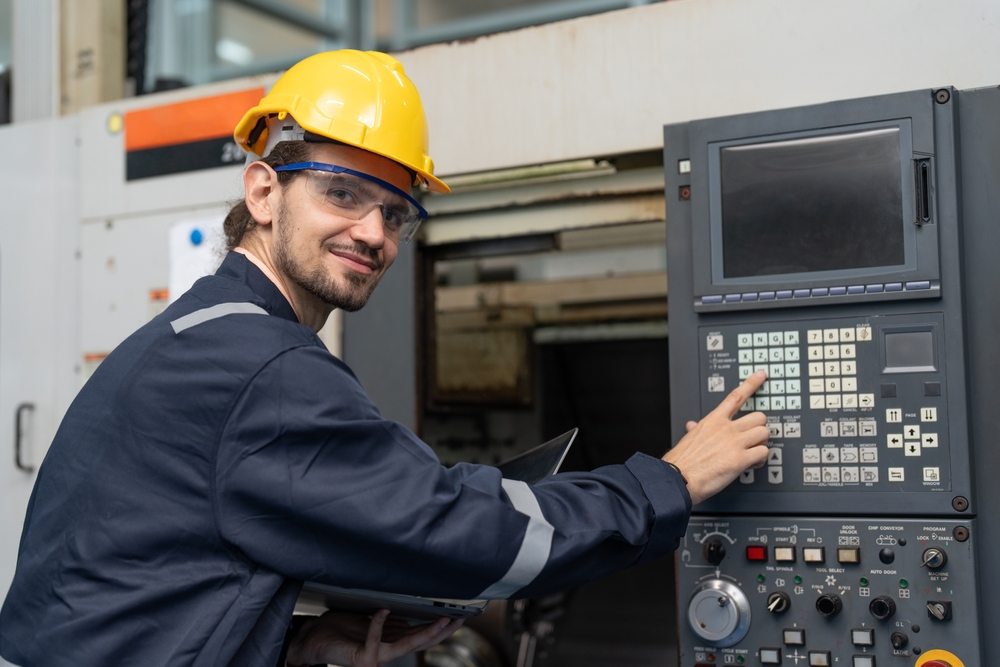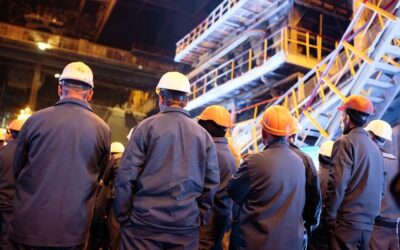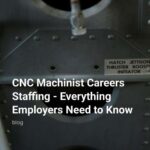
Key Takeaways
- A CNC machinist is a precision manufacturing expert who programs, sets up, and operates CNC machines to create critical industrial components.
- CNC machinist staffing refers to the recruitment and placement of CNC talent by specialized staffing agencies to meet high-demand roles in manufacturing.
- Demand for CNC machinists is rising due to increased reshoring, aging workforce retirements, and expanding advanced manufacturing sectors.
- Employers benefit from partnering with staffing firms to access pre-vetted talent, reduce time-to-hire, and minimize production downtime.
What Is a CNC Machinist?
A CNC machinist operates Computer Numerical Control machines—automated tools controlled by coded instructions (G-code)—to produce precision parts. These machines are essential in industries like aerospace, automotive, defense, energy, and medical manufacturing.
CNC machinists don’t just “push buttons.” They play an active role in the engineering and quality assurance process. Their work ensures that raw materials like steel, titanium, or plastic are shaped into complex parts with exact tolerances.
Job Duties of a CNC Machinist
CNC machinists wear many hats on the shop floor. Their daily responsibilities typically include:
- Interpreting blueprints and CAD drawings to understand dimensions and tolerances
- Programming CNC machines using CAM software or directly inputting G-code
- Setting up tooling and fixtures for new jobs or batch runs
- Calibrating machines and adjusting speeds, feeds, and depth cuts
- Monitoring operations and making mid-process corrections
- Inspecting finished parts using micrometers, gauges, and CMMs (coordinate measuring machines)
- Documenting production results and logging quality control reports
- Maintaining machines, performing minor repairs, and reporting issues to maintenance teams
These tasks require a blend of technical, analytical, and physical skills, making CNC machinists critical contributors to operational efficiency and product quality.
Skills & Qualifications for CNC Machinists
To qualify for a CNC machinist position, candidates typically need:
- High school diploma or GED
- Technical school certificate or associate degree in machining, manufacturing, or mechanical engineering
- Experience with CAD/CAM software like Mastercam, Fusion 360, or SolidCAM
- Working knowledge of G-code, FANUC, HAAS, or Siemens CNC controls
- Strong math skills: algebra, trigonometry, and basic geometry
- Manual dexterity and attention to detail
- Ability to read technical drawings and tolerances
- Basic understanding of materials science and tooling
- Soft skills: time management, communication, teamwork, and problem-solving
Advanced certifications like those from the National Institute for Metalworking Skills (NIMS) or American Machinist enhance employability and often lead to higher pay and leadership roles.
CNC Machinist Career Path
Most CNC machinists begin their careers as:
- CNC machine operators, running basic machines and performing repetitive tasks.
- As they gain experience, they move into setup roles and then to full machinist positions with responsibilities for programming, optimization, and troubleshooting.
- With further experience, machinists may become lead machinists, shop supervisors, CNC programmers, or manufacturing engineers.
The demand for CNC machinists has remained strong, and growth opportunities abound—especially for those who continuously upskill.
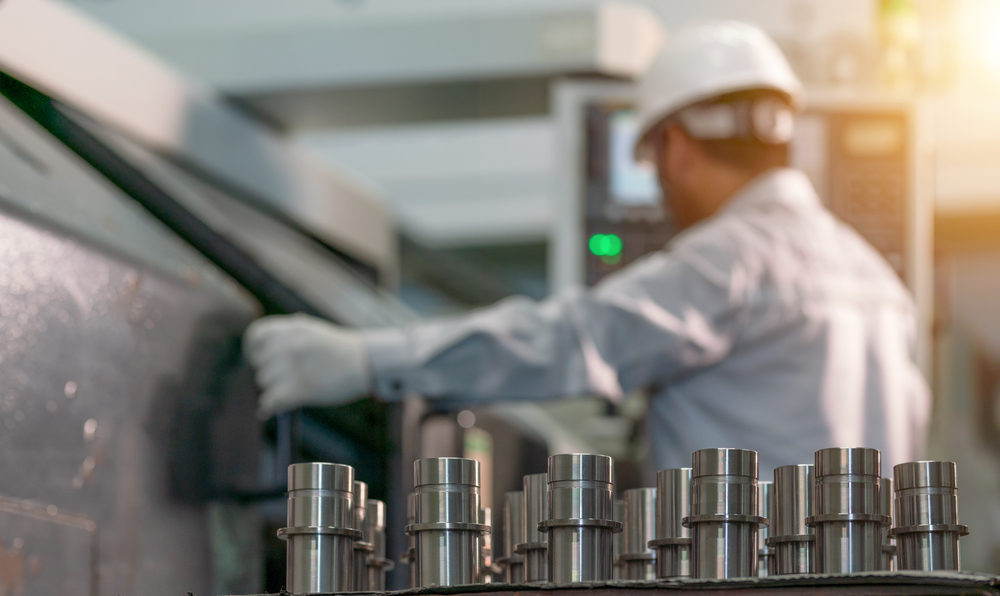
CNC Machinist Salary Overview
Here’s a breakdown of typical CNC machinist salaries in the United States:
| Experience Level | Average Annual Salary |
| Entry-Level (0–2 yrs) | $38,000 – $45,000 |
| Mid-Level (3–5 yrs) | $45,000 – $58,000 |
| Experienced (6+ yrs) | $60,000 – $70,000+ |
| CNC Programmer Roles | $65,000 – $85,000+ |
| Lead Machinist/Supervisor | $70,000 – $95,000+ |
Salaries vary by region, industry, and machine specialization. Aerospace and defense typically offer higher pay due to the precision and compliance standards required.
What Is CNC Machinist Staffing?
CNC machinist staffing is the recruitment, vetting, and placement of skilled CNC professionals into full-time, contract, or temp-to-perm roles. Staffing agencies that specialize in manufacturing or technical fields work closely with companies to fill both urgent and long-term hiring needs.
These firms act as intermediaries between manufacturers and machinists, handling:
- Talent sourcing
- Resume screening
- Skill testing
- Interview coordination
- Compliance and onboarding
This staffing model offers flexibility, lowers hiring risk, and speeds up the recruitment process—especially in high-demand regions.
Why CNC Staffing Is Critical for Employers
In manufacturing, every hour of machine downtime costs money. Staffing shortages can lead to:
- Missed production deadlines
- Lost contracts or customers
- Decreased product quality
- Employee burnout due to overtime
CNC staffing partners help companies:
- Quickly fill roles without compromising quality
- Tap into niche talent pools and passive candidates
- Reduce time-to-hire and recruiting costs
- Scale up production capacity for large or short-term orders
- Mitigate skill gaps by placing pre-trained machinists
Why CNC Staffing Matters to Job Seekers
From the machinist’s perspective, partnering with a staffing agency provides:
- Access to unadvertised job openings
- Fast-track placement into reputable shops and OEMs
- Negotiation help for pay, shift, and benefits
- Career counseling and resume guidance
- Bridge opportunities from temporary to full-time employment
Many skilled machinists use staffing firms as stepping stones into better pay, more complex equipment, or companies that offer long-term career growth.
Types of CNC Staffing Services
Staffing firms offer several hiring models depending on company needs:
- Temporary Staffing: Machinists placed for seasonal work, special projects, or employee leave coverage.
- Temp-to-Hire: Employers evaluate machinists during a trial period before offering full-time employment.
- Direct Hire: Permanent placements facilitated by the staffing agency, typically for specialized or leadership roles.
- On-Site Managed Staffing: Larger firms outsource entire workforce management to a staffing partner.
Each model comes with benefits based on budget, urgency, and role complexity.
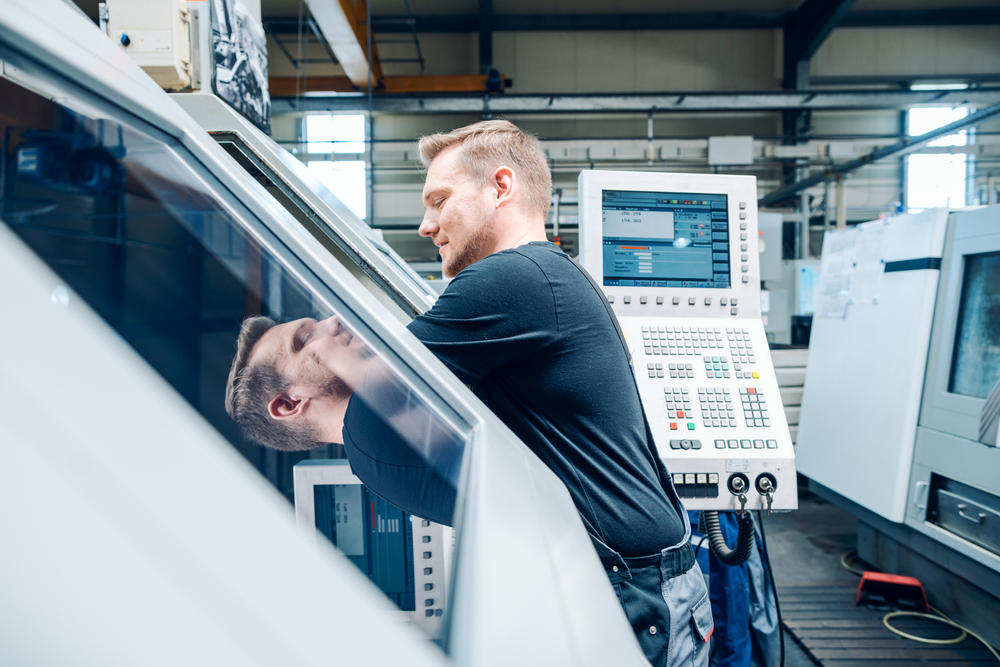
Challenges in CNC Machinist Staffing
Despite the value it brings, staffing in the CNC space faces unique challenges:
Skills Shortage
- The average machinist age is over 50, with retirement rates outpacing new workforce entry.
- Younger generations are less familiar with the trade, resulting in a growing skills gap.
Geographic Disparities
- Manufacturing is often concentrated in specific regions (Midwest, Southeast, parts of Texas and California).
- Staffing agencies must address relocation resistance or provide relocation incentives.
Technological Demands
- As Industry 4.0 and automation increase, the technical skill floor is rising.
- Agencies must evaluate not just manual skills, but also software fluency and adaptability.
Emerging Trends in CNC Staffing
Several macro trends are shaping the CNC staffing landscape:
Reshoring and Domestic Production
U.S. manufacturers are reshoring operations due to supply chain risks, leading to increased demand for domestic machinists.
Upskilling and Certification
Companies are investing in training programs and partnering with trade schools to create pipelines for CNC apprenticeships and certification programs.
Remote CNC Programming
Some firms now employ remote CNC programmers, allowing for hybrid staffing models where programmers work remotely while machinists operate locally.
Data-Driven Hiring
Modern staffing firms use AI tools and predictive analytics to match machinists to jobs more effectively based on skills, experience, and workplace culture fit.
Best Practices for CNC Staffing Success
For Employers:
- Define role scope clearly: software used, material types, part tolerances, shift needs.
- Offer competitive wages and clear advancement opportunities.
- Maintain strong communication with staffing partners to streamline feedback and onboarding.
For Staffing Agencies:
- Conduct rigorous screening: programming assessments, tool recognition, QC process familiarity.
- Stay connected to trade schools, unions, and local industry groups to build pipelines.
- Provide regular feedback loops between employers and machinists to ensure retention.
For Candidates:
- Keep skills current: attend CAM software workshops, get certified in advanced machinery.
- Build a professional resume highlighting machine types, materials, tolerances, and industries worked.
- Be open to temp-to-hire roles as a strategic path into better companies.
Future of CNC Machinist Staffing
The CNC workforce of tomorrow will look different. Success in CNC staffing will hinge on:
- Adapting to automation while still valuing hands-on skills.
- Expanding diversity in skilled trades, including outreach to women, minorities, and veterans.
- Creating sustainable apprenticeship and mentorship programs to ensure the next generation of machinists.
- Offering flexible work arrangements, including project-based work and off-shift bonuses to attract top talent.
For staffing agencies, continued investment in tech tools, candidate experience, and employer branding will drive growth and competitive advantage.
(FAQ)
Q: How long does it take to place a CNC machinist through staffing?
A: Most agencies can place qualified machinists in 1–3 weeks, depending on candidate availability and job complexity.
Q: What qualifications do staffing agencies look for in CNC candidates?
A: Agencies seek candidates with at least 1–2 years of CNC experience, knowledge of specific controls (e.g., FANUC, HAAS), and proficiency in reading blueprints and using measuring tools.
Q: Do staffing firms charge candidates fees?
A: No. Reputable staffing firms charge client companies, not job seekers.
Q: Can staffing roles turn into full-time jobs?
A: Absolutely. Many placements begin as temp or contract roles and convert to permanent positions based on performance.
Q: Are CNC machinist jobs recession-proof?
A: While not entirely recession-proof, CNC machinists are in high demand due to reshoring, automation, and aging workforce trends.
How CNC Machinist Staffing Solves the Skilled Labor Shortage
The demand for CNC machinists continues to grow, fueled by automation, domestic production, and the need for precision manufacturing. As this skilled trade becomes more complex and critical, strategic staffing becomes essential for both employers and job seekers.
For employers, partnering with a CNC staffing agency reduces hiring friction, accelerates time-to-productivity, and ensures quality. For machinists, staffing firms open doors to new opportunities, higher pay, and long-term career growth in an essential industry.
In a world that’s more reliant than ever on precision components and reliable production, CNC machinist staffing is not just a service—it’s a strategic advantage.

